The Bible does not specifyWas Jesus born on December 25?
Answers to 7 Obstacles Raised Against Christmas.
 There have been groups of people who have raised their voices against Christmas in the past and present. Various reasons have been presented to argue that Christians should not celebrate Christmas. This article presents and refutes seven such reasons.
There have been groups of people who have raised their voices against Christmas in the past and present. Various reasons have been presented to argue that Christians should not celebrate Christmas. This article presents and refutes seven such reasons.
1. The Bible does not say ‘Celebrate Christmas’
It is argued that we should not celebrate Christmas because the Bible does not say ‘celebrate Christmas’.
This argument is called ‘super-literalism’. This argument looks for words in the Bible but completely ignores their meaning. If we were to follow this argument, we would have to discard many other things that are practiced and used in the church. The Bible is silent about the almost universal Wednesday prayer meeting, the hymn book, the church building, the Christian newspaper, etc. Concepts like children’s clubs, Christian schools, hospitals, universities came into existence much later. But today we are involved in all these things. The word ‘Trinity’ is not found in the Bible, although the concept of it is found and it is a key doctrine of the church. Of course, those who oppose Christmas certainly do not oppose these things, although they are not in the Bible.
2. The Bible forbids Christmas.
“Therefore let no one judge you in food or drink, or in respect of a festival or a new moon or a Sabbath day” (Colossians 2:16). This verse has been cited to argue that the Bible prohibits holidays such as Christmas.
In this verse, Paul is speaking about the Old Testament festivals. They were only shadows of the person and work of Jesus Christ. To continue to observe those festivals, since Jesus Christ had already come in the New Testament, was to disrespect the reality of His coming or to say that He was insufficient for salvation. Colossians 2:16 is not a verse about Christmas, nor does it prevent believers from observing Christmas.
3. The date of Christ’s birth is uncertain.
It is argued that it is wrong to celebrate December 25 as Christ’s birthday because the Bible does not state when he was born.
It is true that Jesus’ birthday has not been revealed to us. It is equally true that the church does not claim that Jesus was born exactly on December 25. But there are good reasons to believe that this is almost the right time to celebrate Jesus’ birthday.
While Zechariah was serving in the temple in Jerusalem on the Day of Atonement, his son John the Baptist was conceived in the womb of Elizabeth (Luke 1:8-25; 1 Chronicles 24:5). This date is claimed to have been September 25. Six months later, Jesus was conceived in Mary’s womb by the power of the Holy Spirit (Luke 1:26-38). This date was March 25. The date nine months after conception is December 25.
There is no doubt that Christ is a historical figure. If so, then Christ was certainly born on one day or another. On the one hand, since those who oppose December 25 cannot determine another day as an alternative, and since his historicity is beyond doubt, it does not seem very logical to say that Christmas is not Christ’s birthday. Should a girl born on February 29 of most years be celebrated only once every four years? In some cases, the date is not important, but the subject.
4. The Christmas tradition came from the non-Christian world.
Ancient Rome celebrated a festival called Saturnalia. This week-long festival (December 17-23) honored the god Saturn. There was also another festival called Sol Invictus, which was celebrated on December 25. It is claimed that we should not celebrate Christmas because the custom of celebrating Christmas began under the influence of these festivals.
We must not forget that the origin of countless names in our usage is non-Christian. The names of the days are related to the names of gods and goddesses. Sunday and Monday were associated with the worship of the sun and moon, while Tuesday was associated with the god of war. Wednesday (i.e., Wednesday) is derived from Woden, a major god in German mythology. Thursday was associated with the god of the sky or thunder. Friday (i.e., Friday) comes from Freya, the goddess of love. Similarly, Saturday was associated with the god Saturn. But all these days have lost their original meaning. What we call Sunday today is not related to the sun god. For us, Sunday means the first day of the week. When we celebrate Christmas today, we are not worshipping the god Saturn, nor any other god. Whatever the original meaning of Christmas was, the world today understands it as the birthday of Jesus.
5. Traditions associated with Christmas are non-Christian.
Christmas has many traditions associated with it—gift-giving, Christmas trees, Christmas cards, carols, twinkling lights, Santa Claus, etc. Of course, some of the customs associated with Christmas were of non-Christian origin. It is argued that because these are non-Christian, we should not bring them into the church.
Whatever the original meaning of these traditions, today we do not use them in the same sense but with a new meaning. In biblical usage, ‘church’ meant ‘a community of believers’, but throughout history it has taken on a new meaning. Today it also has an additional meaning—a building where believers worship. ‘Mouse’ used to mean a mouse, but today it also means a device used to operate a computer.
The twinkling lights remind us that Christ is the light of the world. A star is placed at the top of the Christmas tree, reminiscent of the Star of Bethlehem. Gifts are exchanged at Christmas, reminding us not only of the gifts brought to Jesus by the wise men, but also of Jesus himself as God’s greatest gift.
6. Christmas has been commercialized.
Commercialization is done in the name of Christmas. Drunkenness and immorality are common on this occasion, and it is argued that the true meaning of Christmas has been lost.
If we deprive someone of something because it is being used in a wrong way, we should throw it away. Take Facebook, for example. Facebook can be compared to a knife. If you use a knife properly and cut vegetables and eat them, you can satisfy your hunger. If you misuse it and plant seeds in people’s stomachs, you can rot in prison. Just because there are people who misuse Facebook does not mean that its use is prohibited. Do we not worship on another day because there is a lot of immorality or accidents on Saturday? Does a plane crash fail aeronautics? Does anyone walk from Kathmandu to Jhapa just because there is an accident? Just because the world has distorted something, that thing is not bad in itself. We can remove the evil attached to it and use it as God intended. We can confidently use the positive aspects of Christmas for the glory of God.
7. Observing Christmas is idolatry.
“Thus says the Lord: ‘Do not learn the way of the nations, and do not be dismayed at the signs of the heavens, as they do. For the customs of the nations are futile. They cut down a tree in the forest, and the hands of the craftsman fashion it into a shape with the tools of the tools. They overlaid it with gold and silver, and fastened it with nails and studs, that it would not totter” (Jeremiah 10:2-4). Since the Christmas tree and other decorations also find a place during the Christmas season, it has been argued that we are committing idolatry when we do so.
Although there are some similarities between Jeremiah 10 and the Christmas tree, Jeremiah is certainly not talking about the Christmas tree. The custom of the Christmas tree seems to have come into existence only about 2,000 years after Jeremiah’s time, that is, after the fifteenth century AD. In this passage, Jeremiah is not talking about the Christmas tree, but about an image representing a false god.
Paul said, “One man esteemeth one day above another; another esteemeth all days alike: let every man be fully convinced in his own mind” (Romans 14:5). We should not overlook another brother who does not come to the same conclusion, “Let not him that eateth despise him that eateth not, and let not him that eateth not judge him that eateth: for God hath received him” (Romans 14:3). Is it not fitting to take advantage of the occasion of Christmas to proclaim the truth that Jesus is the Savior of the world? We are free to celebrate Christmas because of the freedom we have received in Christ in the age of grace. It is important to understand that the Bible nowhere opposes Christmas. Let not those who believe in Christmas despise those who do not, nor let those who do not believe despise those who do. Let us learn to respect one another during this season, as believing or not believing in Christmas is not as important as salvation. Celebrating Christmas or not is a matter of personal freedom.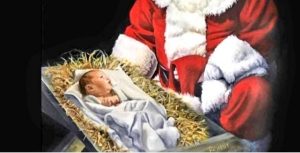
The Bible does not specify.
Here are a few points to consider:
1. **Biblical Silence on Date:**
– The New Testament does not provide a specific date for Jesus’ birth. The Gospels of Matthew and Luke record details surrounding his birth, but they do not mention the exact day or month.
– In ancient times, recording exact birth dates was less common than today, especially for figures like Jesus whose birth was considered significant mainly after his life and ministry.
2. **Early Church Tradition:**
– By the 4th century AD, December 25th had become widely accepted as the date for celebrating Jesus’ birth in Western Christianity. This date may have been chosen to coincide with existing Roman festivals such as Saturnalia and the feast of Sol Invictus (the unconquered sun), which were celebrated around the winter solstice.
– Eastern Christian traditions, such as the Orthodox Church, celebrate Christmas on January 7th, following a different calendar and historical traditions.
3. **Symbolism and Tradition:**
– Regardless of the historical accuracy of December 25th, the celebration of Christmas focuses on the theological significance of Jesus’ birth rather than the specific date.
– It serves as a time for Christians to reflect on the Incarnation — God becoming human in Jesus Christ — and its profound implications for salvation.
4. **Focus on Meaning:**
– Whether or not December 25th is the exact date, Christmas celebrations provide an opportunity for believers to reflect on the fulfillment of Old Testament prophecies concerning the Messiah’s birth (e.g., Isaiah 7:14; Micah 5:2).
– It emphasizes God’s love for humanity, demonstrated through the birth of Jesus, and invites people to respond in faith and worship.
In conclusion, while December 25th has become the traditional date for celebrating Jesus’ birth in much of the Christian world, it is not explicitly stated in the Bible. The focus of Christmas remains on the theological significance of Jesus’ birth rather than the specific historical date.
The explanation you provided captures the historical context and various traditions surrounding the celebration of Jesus’ birth on December 25th. Here’s a summary of the key points and perspectives:
1. **Historical Background:**
– Hippolytus of Rome, in the 3rd century, is one of the earliest sources attributing December 25th as Jesus’ birth date.
– The Philoclian Calendar from the year 336 AD marks one of the earliest known observances of Christmas on December 25th, following Roman practice.
2. **Reasons for December 25th:**
– **Nine Months after March 25th:** Some early Christian thinkers, like Sextus Julius Africanus and Tertullian, calculated December 25th as the date of Jesus’ birth based on the belief that he was conceived and died on the same calendar day.
– **Annunciation and Creation Date:** Another tradition links Jesus’ conception (March 25th, coinciding with the Annunciation) with His birth on December 25th, aligning with the belief that March 25th was also the anniversary of the creation of the world.
– **Pagan Festival:** December 25th coincided with pagan celebrations of the winter solstice. The Church adopted this date to offer a Christian alternative, eventually adapting some symbols and practices from the pagan festivities into Christian celebrations.
3. **Historical Validity and Uncertainty:**
– Scholars and historians debate whether December 25th is the actual date of Jesus’ birth, with some proposing other seasons like fall based on historical climate data in Judea.
– The exact year of Jesus’ birth is also uncertain, estimated to be between 6 BC and 4 BC.
4. **Spiritual Significance:**
– Despite the uncertainty of the date, the celebration of Christmas emphasizes the theological importance of Jesus’ birth, marking the Incarnation — God becoming human.
– The details provided in Luke 2, such as Jesus being wrapped in swaddling clothes and placed in a manger, highlight the humble circumstances of His birth, emphasizing His nature as Savior and Messiah.
5. **Conclusion:**
– Ultimately, while the exact date of Jesus’ birth remains unknown and possibly less important, the theological significance of His coming into the world is central to Christian faith.
– Christians celebrate Christmas as a time to rejoice in the birth of Jesus, the fulfillment of God’s promise, and the beginning of His mission to redeem humanity.
This perspective emphasizes that while December 25th has become the traditional date for celebrating Christmas, the essence of the celebration lies in the profound spiritual implications of Jesus’ birth rather than the specific historical date.
What is the history of Christmas?

The history of Christmas is a combination of religious, cultural, and traditional backgrounds. The festival is celebrated primarily by Christians as the celebration of the birth of Jesus Christ.
Birth of Jesus Christ:
The Bible does not explicitly state the date of Jesus’ birth. Christian tradition considers December 25 to be Jesus’ birthday, which coincides with ancient mythological festivals.
There is evidence that Christmas was first celebrated in the year 336, during the reign of the Roman Emperor Constantine.
Selection of December 25:
The date was chosen to coincide with the festival of Sol Invictus, the “Invincible Sun.” This made it easier to integrate Christianity with ancient Roman tradition.
The Middle Ages and the Renaissance
Celebrations in the Middle Ages:
During this time, Christmas was celebrated with feasting, games, and singing. However, much of it was focused on fun and entertainment rather than religion.
Restrictions:
In the 17th century, Puritans in England banned Christmas as “inappropriate” because it was associated with too many mythological traditions.
The Evolution of Modern Christmas
The Renaissance of the Victorian Era:
In the 19th century, Christmas was promoted as a family-centered festival of kindness and charity.
Literature such as Charles Dickens’ “A Christmas Carol” increased its popularity.
The traditions of decorating Christmas trees and sending cards began around this time.
The Rise of Santa Claus:
The character of Santa Claus originated with St. Nicholas, a liberal religious leader from the 4th century.
The Dutch tradition of “Sinterklaas” influenced the modern form of “Santa Claus” in America.
In the 20th century, Coca-Cola popularized Santa Claus, dressed in red and white, around the world.
Professionalization:
Christmas also developed into a major time for gift shopping and trading in the 20th century.
Worldwide diversity

Europe: Christmas is marked by carol singing, church attendance, and family feasts.
Latin America: Traditions such as Las Posadas and midnight prayers take on an important place.
Asia and Africa: It is also celebrated as a cultural or commercial festival in non-Christian majority countries.
conclusion
The history of Christmas is a blend of religious, cultural, and social traditions. It is now widely accepted as a symbol of peace, love, and harmony throughout the world, rather than just a religious holiday.
What is the meaning of the word Christmas?

The meaning of the word Christmas is deeply connected to its name and origin. The original meaning of the word and its historical significance can be explained as follows:
The origin of the word Christmas
The word “Christmas” comes from the Old English word Christes Maesse.
Christes: “Christ” means Jesus Christ (the founder of Christianity).
Maesse: “Mass” means religious prayer meeting or worship.
Thus, Christmas means “prayer meeting of Jesus Christ”, which refers to the religious significance of the birth of Jesus Christ.
In Old English:
This word was first used around 1038.

Religious and cultural meaning
1. Religious meaning:
Christmas is a festival in Christianity that commemorates the birth of Jesus Christ (who is considered the Son of God).
This day is celebrated as the day Jesus came to earth to save humanity.
2. Cultural meaning:
Nowadays, Christmas has become not only a religious festival but also a symbol of getting together with family and friends, sharing love and kindness, and new beginnings.
—
Traditions associated with Christmas and their meaning
Christmas tree:
The green tree represents life and rebirth.
Gift giving customs:
This symbolizes the gifts given to Jesus Christ by the Three Wise Men.
Santa Claus:
A character who shares generosity and kindness, which signifies the importance of “sharing love.”
Tradition of lighting lamps:
It is a symbol of light overcoming darkness.
Christmas in Nepali context
In Nepal, Christmas is celebrated as the “main festival of Christians.” However, now many people are celebrating it beyond religious boundaries as a cultural celebration.
Message of peace and reconciliation:
Christmas conveys a message of humanity that transcends race, religion, and culture.
Time with family:
Christmas is also important as an opportunity to enjoy time together with family and community .
conclusion
Christmas has a very deep religious and cultural meaning. It is not only a celebration of the birth of Jesus Christ, but also a celebration of love, kindness, and unity. The word “Christmas” itself carries a sense of holiness and celebration, which connects millions of people around the world.
Is Christmas 24th or 25th?
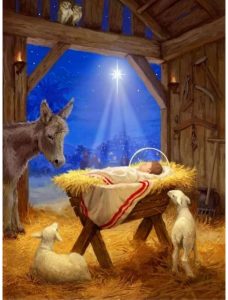
Is Christmas on December 24th or December 25th?
The main celebration of Christmas is celebrated on December 25, but the main activities of this day begin on the night of December 24 (Christmas Eve). The reason for this is linked to religious and cultural traditions. Here is a more detailed explanation for understanding:
Why is December 25th Christmas Day?
1. The birth of Jesus Christ:
Traditionally, December 25 is considered the birthday of Jesus Christ. However, the Bible does not explicitly state the date of Jesus’ birth.
In the fourth century, the Roman Church officially declared December 25 to be the celebration of the birth of Jesus Christ.
This date was chosen to coincide with the Roman mythological festivals of Sol Invictus and Saturnalia.
2. Religious perspective:
A special prayer meeting (Mass) is held on December 25, which is called “Christ’s Mass.” This is why this day is called Christmas.
The role of Christmas Eve
1. Traditions that begin to be celebrated at night:
According to ancient Jewish tradition, the new day begins at sunset. Therefore, Christmas celebrations begin on the night of December 24.
The night of December 24 is called Christmas Eve, when families gather, feast, and attend Midnight Mass.

2. Midnight Special:
As mentioned in the Bible, Jesus Christ is believed to have been born at midnight. Therefore, special prayers are held at midnight on December 24th.
During this time, candles are lit in churches, Christmas carols are sung, and the message of Jesus’ birth is preached.
Significance of December 24th and 25th (Culturally)
1. 24 December: Christmas Eve
It is customary for family and friends to gather on the night of December 24 to feast, exchange gifts, and decorate the Christmas tree.
This night is also a time for children to wait for Santa Claus.
2. December 25: Main Festival
This day is the formal celebration of the birth of Jesus Christ. Special prayer meetings are held in churches, feasts and various cultural programs are organized.
—
December 24th and 25th in the Nepali context
Christians in Nepal begin their celebrations on the night of December 24 (Christmas Eve). On December 25, a mass prayer meeting and cultural program are held in churches.
December 24:

In the evening, the tradition of lighting candles, feasting, and exchanging gifts is prevalent.
December 25:
This day is celebrated as a major festival, with religious rituals, cultural programs, and community fun.
conclusion
The main day of Christmas is December 25. However, its celebration begins on the night of December 24, which is called Christmas Eve. This makes both the 24th and 25th dates important religiously, culturally, and socially.
Why is December 25th Christmas?

Why is December 25 considered Christmas Day?
The decision to select December 25 as Christmas Day is based on religious, historical, and cultural reasons. There are some important reasons behind this:
1. The day of the birth of Jesus Christ
Christmas is the celebration of the birth of Jesus Christ in Christianity. However, the date of Jesus’ birth is not clearly mentioned in the Bible. The reason for considering December 25 as Jesus’ birthday is linked to ancient church and tradition.
Selection in the 4th century:
During the reign of the Roman Emperor Constantine, in the year 336, it was decided to celebrate Christmas on December 25 for the first time.
At this time, this date was officially accepted by the Church as the day of Jesus’ birth.
2. Matching with the mythological festival
The date of December 25 also coincides with ancient mythological festivals. This played an important role in the selection of Christmas.
Sol Invictus:
December 25 was celebrated in the Roman Empire as the festival of Sol Invictus (the Unconquered Sun). This festival celebrated the rebirth and growth of the sun’s power.
When Christianity spread throughout the Roman Empire, this date became easier to incorporate into Christian tradition. Thus, December 25 was chosen as the date of Jesus’ birth.
Saturnalia:
Around December 25, the Romans celebrated the Saturnalia, which involved festivities, feasting, and gift-giving. These mythological traditions helped establish December 25 as a day of celebration.
3. Religious and cultural reasons
When choosing December 25, an attempt was made to bring religious and cultural elements together.
On this date, witnessing the re-emergence of the sun, it was taken as a symbol of new life, which served as a symbol of the birth of Jesus Christ and the “spiritual light” of his teachings.
4. Practice of the Eastern Church
Some Christian churches, especially the Eastern Orthodox Churches (such as the Catholic and Orthodox Churches), celebrate December 25 as the birthday of Jesus, while other churches celebrate it on January 6. However, December 25 is accepted as Christmas Day by most Christians.
conclusion
The reasons for celebrating December 25 as Christmas are deeply rooted in religious, historical, and cultural contexts. The date is defined as being related to the origins and traditions of Christianity due to its correspondence with ancient mythological festivals such as Sol Invictus and Saturnalia. Although the date of birth of Jesus Christ is not mentioned in the Bible, December 25 is officially celebrated as the birthday of Jesus.
What is Christmas in simple words?

Are you from Christmas?
Christmas is the Christian celebration of the birth of Jesus Christ. This day is celebrated to commemorate the birth of Jesus Christ. According to Christian belief, Jesus Christ is the Son of God and his birth brought hope for salvation to the world.
—
Biblical meaning of Christmas:
The date of Christmas (December 25) is chosen to officially celebrate the birth of Jesus, but the story of Jesus’ birth is mentioned in various places in the Bible. A famous verse is Luke 2:11:
“Today in the city of David a Savior has been born to you, who is the Lord Jesus Christ.”
This verse shows the birth of Jesus as the Savior and God’s gift for the sins of the world. The birth of Jesus is believed to have brought new hope and salvation to the world.
—
Key thoughts on Christmas:
1. The Birth of Jesus:
The birth of Jesus shows God’s love and mercy to people. According to the Bible, the birth of Jesus is a miraculous event that brings peace and salvation to the world. (Luke 2:10-14)
2. Love and kindness:
The main message of the birth of Jesus Christ is love, peace, and mercy. The Bible says:
“Do all these things for us, for a new commandment I give you, that you love one another.” (John 13:34)
3. Rescue and Hope:
The birth of Jesus opens the way for salvation for mankind. According to the Bible, Jesus died and rose again three days later to atone for the sins of the world. (John 3:16)
Importance of Christmas:
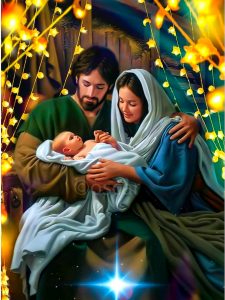
Religious significance:
Christmas is not just a festival, it commemorates the coming of Jesus Christ into the world and the importance of his redemptive work. On this day, Christians go to church to pray and remember the life and teachings of Jesus.
Cultural Significance:
Nowadays, Christmas is also celebrated as a cultural festival, where people spend time with family, exchange gifts, and spread the spirit of kindness and cooperation in society.
conclusion:
Christmas is the celebration of the birth of Jesus Christ, who brings God’s message of love and salvation to people. The Bible presents the birth of Jesus as a symbol of the atonement for the sins of the world and the salvation of the world. “It is an opportunity to welcome Jesus Christ, who gave the world new life and hope.”
The history of Christmas

History of Christmas
The history of Christmas is very old and varied, and its religious and cultural significance has evolved over time. Here is a brief explanation of its history:
1. The religious basis of Christmas
Christmas is the main festival of Christianity and is celebrated as a celebration of the birth of Jesus Christ. The birth of Jesus Christ is considered a symbol of salvation and hope throughout the world. Although the date of Jesus’ birth is not explicitly mentioned in the Bible, there were special reasons for celebrating December 25 as the day of Jesus’ birth, which was later approved by the church.
2. Select the date of December 25th
The decision to choose December 25 as the date of Christmas was made in the 4th century, during the reign of the Roman Emperor Constantine. By declaring this date as the birthday of Jesus, it coincided with Roman mythological festivals such as Sol Invictus (the Unconquered Sun) and Saturnalia. These festivals celebrated the rebirth and growth of the sun’s power.
This facilitated the fusion of Roman culture and Christianity, and Christmas began to be celebrated on December 25th.
3. Early era and traditions
Christmas was originally celebrated as a prayer service in church, where people would pray and pay homage to the birth of Jesus. The story of Jesus’ birth is recounted in the Bible in the Gospels of Luke and Matthew, which recount the birth of Jesus on Holy Night.
Medieval Age (5th – 15th Century):
In the Middle Ages, the Christmas celebration began to encompass religious and cultural traditions. The night before Christmas was called Christmas Eve, and special prayer meetings and grand feasts were held on that night.

4. The arrival of Santa Claus
Another important tradition associated with Christmas is that of Santa Claus. The story of Santa Claus is based on ancient European traditions, specifically the life of a religious priest named Saint Nicholas.
Saint Nicholas, who was famous for giving gifts to poor children, eventually became known as Santa Claus. This played an important role in celebrating Christmas not only as a religious, but also as a cultural and family celebration.
5. Modern times and Christmas culture
In the late 19th and early 20th centuries, the Christmas holiday began to take on greater social and cultural significance. The traditions of Christmas trees, gift-giving, and communal feasts began to spread. Christmas carols (singing songs) and Christmas cards also came into vogue during this time.
Industrial Revolution and Gift Distribution:
In the late 1800s, with the Industrial Revolution and population growth, the tradition of gift-giving expanded. From this time on, Santa Claus and the tradition of exchanging gifts became very popular.
6. Christmas in the present time
Nowadays, Christmas has become not only a religious festival, but also a cultural celebration. Many Christians celebrate Christmas by praying in church and spending time celebrating the birth of Jesus. Along with this, the Christmas festival gives a message of unity, love and peace to people all over the world.
Christmas traditions such as Christmas trees, Santa Claus, Christmas carols, and gift-giving are now popular around the world and are celebrated culturally.
conclusion
The history of Christmas is ancient and diverse, and it occupies an important place from religious, cultural, and social perspectives. The festival, which commemorates the birth of Jesus Christ, has now become a global celebration, which reveals the importance of love, peace, and living together.

Christmas is an important Christian festival that celebrates the birth of Jesus Christ. It is celebrated on December 25, and is especially celebrated as a festival to spread the message of love, mercy, and peace. The birth of Jesus Christ is believed to have given hope of salvation to humanity and the world.
Religious significance of Christmas:
The religious significance of Christmas Day is associated with the birth of Jesus Christ. In Christianity, it is believed that Jesus Christ is the Son of God and that his birth brought light and victory over sin and darkness in the world.
Bible verse (Luke 2:11):
“Today in the city of David a Savior has been born to you, who is the Lord Jesus Christ.”
From this verse it is clear that the birth of Jesus is a symbol of salvation and new life.
Christmas traditions:
Christmas Day traditions include many cultural activities:
1. Christmas Tree:

The tradition of decorating a Christmas tree originated in Europe and has become popular all over the world. The tree is decorated with colorful lights and various decorative items.
It also has the tradition of placing an angel or star, which symbolizes the light and guidance of the birth of Jesus.
2. Santa Claus:
Santa Claus is a famous character whose birth comes from the story of Saint Nicholas. Santa Claus gives gifts to children and this adds to the fun and joyous atmosphere of Christmas.
3. Christmas Carols (Singing Songs):
Christmas carols are songs sung at Christmas that convey joy, peace, and the birth of Jesus.
These songs are sung in churches, homes, and public places.
4. Gift exchange:
At Christmas, family and friends give each other gifts. This spreads a sense of love and gratitude towards each other.
5. Christmas Eve:
The night of December 24 is called Christmas Eve, when a special prayer meeting (Midnight Mass) is held. On this day, families gather to eat and pray special prayers on the occasion of the birth of Jesus.
Cultural significance of Christmas:
Christmas is not just a religious festival, it is now considered a cultural celebration as well. People all over the world use it as an occasion to spend time with family and friends, spread kindness and love, and bring a message of peace to society.
Social Integration:
Christmas brings people from different communities together. People celebrate together and show support and dedication to each other.
Values and traditions:
Christmas plays an important role in preserving values and traditions in families and society. It gives people a sense of sharing and true love for each other.
The commercial side of Christmas:
Nowadays, Christmas is also celebrated as a commercial festival. From a commercial point of view, it is a time of big shopping and sales, where discounts and offers are provided on various items. People are busy buying gifts and buying decorative items.
conclusion:
Christmas is a time to celebrate the birth of Jesus Christ and spread the message of that birth. Along with the religious significance of this day, it also has a cultural and social dimension that conveys a message of unity, love, and peace. Christmas is a time to enjoy family, show kindness and support, and share joy with one another.
15 facts about Christmas.

Here are 15 interesting facts about Christmas, along with Bible verses:
1. The birth of Jesus Christ
Christmas is the celebration of the birth of Jesus Christ. The Bible says,
“Today in the city of David a Savior has been born to you, who is Jesus Christ the Lord.” (Luke 2:11)
—
2. The birthplace of Jesus
Jesus was born in Bethlehem.
“But Jesus was born in the town of Bethlehem…” (Matthew 2:1)
—
3. Christmas date is December 25th
Christmas is celebrated on December 25, but the Bible does not specify the date of Jesus’ birth. This date corresponds to ancient Roman festivals.
–
4. The Origin of Santa Claus
The character of Santa Claus is inspired by the life of Saint Nicholas, who was famous for giving gifts to poor children.
—
5. The tradition of the Christmas tree
The tradition of decorating a Christmas tree is believed to have originated in Germany. Its main meaning is “the light of Jesus’ life.”
—
6. The stables that took turns at the birth of Jesus
At the time of Jesus’ birth, the shepherds came first to see Jesus.
“The donkeys came and met him…” (Luke 2:16)
—
7. Christmas Carol (singing song)
Christmas carols convey the message of joy and peace of the birth of Jesus.
“Glory to God in the highest, and on earth peace…” (Luke 2:14)
—
8. The star that appeared at the birth of Jesus
At the time of Jesus’ birth, a giant star appeared in the sky, guiding three wise men to Jesus’ birthplace.
“And they saw a great star…” (Matthew 2:2)
—
9. Three Wise Men
Three wise men came with the intention of bringing gifts to Jesus, which included frankincense, frankincense, and myrrh.
“They presented their gifts…” (Matthew 2:11)
—
10. Characteristics of the Night of Jesus’ Birth
The night of Jesus’ birth is called Christmas Eve, which includes a special program of prayers and hymns.
11. The birth of Jesus is a miraculous event
Although Jesus’ birth was natural, it is considered a gift and salvation from God.
“And after a while, the Son of God was born of Mary.” (Luke 1:35)
12. Gift-giving tradition
The tradition of giving gifts at Christmas comes from the Three Wise Men.
“They gave Jesus gifts of aloes, frankincense, and myrrh.” (Matthew 2:11)
13. Santa Claus’s colors
The traditional colors of Santa Claus are red and white, reflecting Saint Nicholas’s costume and diverse cultural influences.
14. Christmas food and special feast
Christmas traditionally features a special feast, with both meat and sweet dishes, creating an atmosphere of joy and celebration.
15. Belief that the birth of Jesus brought peace to the world
One of the main messages of Christmas is that the birth of Jesus brought peace and salvation to the world.
” Glory to God in the highest and peace on earth..
The Mystery of Christ.

The Mystery of Christ is a profound religious theme whose meaning and significance are of great importance in Christianity. It is often understood as the deeper aspects of Jesus’ life, work, and purpose. The Mystery of Jesus Christ encompasses some of his major aspects, which lead man to a relationship with God, salvation, and the path of faith.
Here is a detailed explanation of the mystery of Jesus Christ:
1. Jesus Christ is the Son of God
In the Christian faith, Jesus is known as the Son of God and the Savior of humanity. Although Jesus is a combination of human and divine qualities, the mystery of his life lies in the fact that he was born on earth as an ordinary human, even though he was the Son of God.
According to John 1:14 of the Bible:
“And the Word became flesh and dwelt among us.”
According to this, Jesus Christ is the Word of God who took human form and came into the world.
2. The dual nature of Jesus (secondary nature)
Another aspect of the mystery of Jesus is his dual nature – on the one hand he is fully God and on the other he is also fully human. This is called the “dual nature.” Jesus’ combination of humanity and divinity is difficult to understand, but it proves the uniqueness of his birth, life, death, and resurrection.
The Bible mentions this:
“Me and the Father are one.” (John 10:30)
This makes clear Jesus’ unwavering unity with God and his divinity.
3. Jesus’ saving work
The main purpose of Jesus Christ is the atonement and salvation of people’s sins. The events of his life and death are truly a great mystery for the atonement of the sins of the world. The death and resurrection of Jesus opened the way of salvation for all people in the world.
Romans 5:8 says:
“But God demonstrates his own love for us in that while we were still sinners, Christ died for us.”
4. The mystery of the birth and resurrection of Jesus
The birth and resurrection of Jesus are considered to be the most important mysteries of Christianity. Jesus’ birth was specifically from a virgin, which proves his miraculous birth. The resurrection of Jesus, in which he returned to life on the third day after his death, is also part of the mystery of Jesus’ divinity and salvation.
Matthew 28:6 says:
“He is not here, but has risen. It has happened just as he said.”
This is evidence of the resurrection of Jesus, who brought his divine work and new hope of life to the world.
5. The miraculous work of Jesus
The miraculous works that Jesus performed, such as giving sight to the blind, making the lame walk, raising the dead, and curing incurable diseases, are all evidence of Jesus’ divine power. These miraculous works demonstrate the combination of His divinity and humanity, and this confirms His uniqueness.
6. Jesus’ death and atonement for sin
The death of Jesus is not just a historical event, it is proof of God’s love for humanity. His death was intended to be a sacrifice to atone for the sins of the world. The mystery of Jesus’ death is that by sacrificing his life, he showed all people the way to salvation.
Ephesians 5:2 says:
“Christ loved us and laid down his life for us.”
7. The Teachings of Jesus
Jesus’ teachings are also based on the principles of “love” and “forgiveness.” Jesus said that in order to attain the kingdom of God, man must show love and mercy. Jesus’ teachings emphasize not only external actions, but also purity of heart and spiritual development.
In Matthew 22:37-39, Jesus said:
“You shall love the Lord your God with all your heart, with all your soul, and with all your mind. The second is this: You shall love your neighbor as yourself.”
conclusion
The mystery of Jesus Christ is a profound and unique understanding of our path to salvation and our relationship with God. The life and work of Jesus Christ are a source of inspiration and guidance for our faith and life. His message of love, forgiveness, and salvation leads us on the path of unity and peace with God.
15 Verses to Prepare Your Heart for Christmas.

Here are 15 Bible verses to help you prepare for Christmas, to help you purify and prepare your heart. These verses discuss the significance of Jesus’ birth, his purpose, and how we should relate to him.
1. Isaiah 9:6
“For unto us a child is born, unto us a son is given: and the government shall be upon his shoulder: and his name shall be called Wonderful, Counsellor, The mighty God, The everlasting Father, The Prince of Peace.”
Explanation: The birth of Jesus will bring peace and salvation.
2. Matthew 1:23
“Behold, the virgin shall conceive and bear a son, and they shall call his name Emmanuel, which means ‘God with us’.”
Explanation: Jesus came to earth to live with us.
3. Luke 2:11
“Today, in Bethlehem, the city of David, a Savior has been born to you. He is the Messiah, the Lord.”
Explanation: Jesus was born as the Savior of us all.
4. Luke 2:14
“Glory to God in the highest, peace on earth, good will toward his people.”
Explanation: The birth of Jesus has brought peace and joy to the earth.
5. John 1:14
“The Word became flesh and dwelt among us. We have seen his glory, the glory as of the only Son, who is with the Father.”
Explanation: The birth of Jesus made it possible for us to see God in human form.
6. Matthew 2:10-11
“When they saw the star, they rejoiced with exceeding great joy. And entering the house, they saw the child with Mary his mother, and they worshiped him.”
Explanation: These three kings worshiped Jesus in honor of his birth.
7. Romans 15:13
“May the God of hope fill you with all joy and peace, and may you abound in hope by the power of the Holy Spirit.”
Explanation: The coming of Jesus gives us hope and peace.
8. Matthew 2:6
“But you, Bethlehem, in the land of Judea, though you are little, from you will come a ruler who will shepherd my people Israel.”
Explanation: Jesus was born in Bethlehem and his reign brings peace and justice to the earth.
9. John 14:27
“Peace I leave with you, my peace I give to you. Not as the world gives peace, do I give to you, nor let your heart be troubled.”
Explanation: The birth of Jesus gives us peace and courage.
10. Isaiah 11:1-2
“At that time a beautiful Branch will come forth from the house of David, and his roots and branches will be strong. The Spirit of God will rest on him.”
Explanation: Jesus is from the lineage of David and has the Spirit of God in him.
11. Luke 2:19
“But Mary carefully pondered all these words and kept them in her heart.”
Explanation: Mary carefully considered the events of Jesus’ birth and understood his glory.
12. Matthew 2:2
“Where is your newborn king, the king of the Jews? We have seen his star throughout the land and have come to worship him.”
Explanation: The birth of Jesus has attracted the whole world to worship and adore him.
13. Luke 2:35
“Many people will oppose him because of this.”
Explanation: The coming of Jesus brings opposition to some and salvation to others.
14. John 3:16
“For God so loved the world that he gave his only begotten Son, that whosoever believeth in him should have everlasting life.”
Explanation: The birth of Jesus brought the gift of eternal life.
15. Luke 1:47-53
“My soul boasts in the Lord, and my heart rejoices in my Savior.”
Explanation: Mary glorified the birth of Jesus and expressed joy in God.
These Bible verses remind us of the importance of Jesus’ birth and his purpose at Christmas. These verses help purify our hearts and glorify the coming of Jesus.
These 5 Bible verses will help us spiritually prepare our hearts for Christmas and understand the significance of Jesus’ birth. These verses inspire us to think about love, hope, salvation, and peace, which help us reflect the good meaning of Christmas in our lives.
Is the Way We Give Christmas Gifts Materialistic and Selfish?
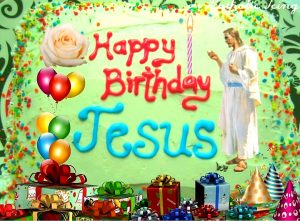
The tradition of giving gifts at Christmas has been around since ancient times, and its purpose is to express love, kindness, and sharing. However, there are many opinions about what kind of behavior this tradition is being presented as these days. There may be some reasons that make it materialistic and selfish, but its true purpose is to spread the joy and peace of the birth of Jesus.
1. Materialistic Approach
Nowadays, the tradition of Christmas gift-giving seems to be largely influenced by commercialism. Many people focus on price and materiality when giving gifts, which makes it materialistic. In this sense, some people participate in competitions to buy cheap gifts or branded items, which only focus on the material value of the gift.
Gift giving can thus become just another form of shopping, which can sideline the true purpose of Christmas, which is about exchanging gifts to spread love and kindness.
—
2. Selfish tendency to give gifts
Sometimes, Christmas gift-giving is based solely on the expectation of receiving a gift from others. If people are selfish in their gift-giving, it only seeks their own benefit rather than real feelings and intentions. For example, most people give gifts in the hope of receiving a gift in return, which does not reflect the true meaning of Christmas.
—
3. The Good Purpose of Christmas: Love and Dedication
But, if we want to live the Christmas tradition with its true spirit, the act of gift-giving is meant to express love, kindness, and a sense of sharing. Christmas is not just about giving material gifts, but rather about sharing in the joy and peace of other people and expressing gratitude for all the blessings we have received.
Jesus Christ taught his followers true love and service, and we need to live it out. The birth of Jesus brought a message of peace and salvation, and incorporating this message into the tradition of gift-giving at Christmas can give it true meaning.
—
4. The true purpose of gift giving
The true purpose of gift-giving is to spend time with each other, to express love and gratitude, and to spread peace and understanding in society. If we bring the message of Jesus to life through gifts, we make Christmas come alive not only as an exchange of material goods, but also psychologically and spiritually.
The Bible says, “You shall love the Lord your God with all your heart, with all your soul, and with all your mind. The second is this: You shall love your neighbor as yourself.” (Matthew 22:37-39)
This verse emphasizes the importance of love and cooperation, which we can also incorporate into the tradition of gift-giving.
conclusion
Although the tradition of Christmas gift-giving may seem somewhat materialistic and selfish, if we understand and implement its purpose in the right way, we can transform it into a great opportunity to spread love, gratitude, and peace in society. Thus, Christmas gifts are not just about material things, but also about relationships, sharing, and spiritual connection with others.
10 Beautiful Christmas Songs You Won’t Want to Miss This Season.
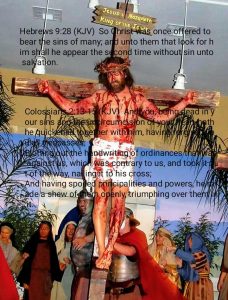
Here are 10 Christmas songs you’ll want to listen to this Christmas season. These songs convey the message of Christmas joy, love, and peace.
1. “Joy to the World”
This song has a message of joy and peace in the world about the birth of Jesus. It is a famous and beloved Christmas song.
“Joy to the world, the Lord is come!”
2. “Silent Night”
This song depicts the scene of a peaceful and holy night, when Jesus Christ was born. Its calm and solemn melody reveals the true meaning of Christmas.
“Silent Night, Holy Night!”
3. “O Holy Night”
This song reveals the greatness and significance of the birth of Jesus. Its powerful voice and emotional melody will touch your heart.
“O Holy Night! The Stars Are Brightly Shining!”
4. “Waka Fog Christmas” (We Wish You a Merry Christmas)
This is a happy and upbeat song that conveys Christmas greetings.
“Waka Fog Christmas, and a Happy New Year!”
5. “Happy Christmas (War Is Over)”
This song by John Lennon conveys a message of peace and love and raises its voice against war.
“Happy Christmas, the war is over…”
6. “Little Drummer Boy”
This song tells the story of a little boy who pays homage to the birth of Jesus by playing a drum.
“Come, Vern Tumba, bum-bum-bum…”
7. “O Little Town of Bethlehem”
This song describes the peaceful atmosphere of the town of Bethlehem and the greatness of the birth of Jesus.
“O Little Town of Bethlehem, How Still We See Thee…”
8. “Feliz Navidad”
This song is a Spanish song that wishes you a Merry Christmas.
“Feliz nabhidad, Feliz nabhidad, Feliz nabhidad, Feliz nabhidad…”
9. “Ring the Bells”
This song expresses the joy and celebration of the birth of Jesus, and encourages everyone to spread that joy.
“Ring the bells, ring the bells!”
10. “Have You Heard the Good News?”
This song spreads the message of the birth of Jesus with joy and enthusiasm, bringing the good news of salvation to everyone.
“Have you heard the good news? Hey, have you heard?”
These 10 songs capture the joy and peace of the Christmas season and help you remember the most cherished moments of this season.
Who Were Mary and Joseph’s Other Children?

According to the Bible, Mary and Joseph had other children. The Bible says that Jesus Christ was born of a special birth, and that he was born of the “virgin Mary.” Later, Joseph and Mary had other children, whose names are mentioned in the Bible. These children were the children of Jesus, who is mentioned in several places in the Bible.
1. James
James is mentioned in the Bible as the true brother of Jesus. James is especially known as **”James the Theologian,”** who played an important role in the early church.
Matthew 13:55 says:
“What is this? This is Jesus, the carpenter’s son? His mother is Mary, and his brothers are James, Joseph, Simon, and Judas.”
2. Joseph
Joseph was also one of Jesus’ brothers. Although not much is known about him in the Bible, it does state that he was one of the children of Mary and Joseph.
3. Simon
Simon was also a brother of Jesus. The Bible does not specifically mention this, but his name is mentioned among the other brothers of Jesus.
4. Judah
Another brother of Jesus is named Judah. Judah’s name is also mentioned in the Bible among the names of Jesus’ brothers.
“Judas” is also included in the list of names of Jesus’ brothers in Matthew 13:55.
Note:
There are some differences in the names of Jesus’ brothers in various biblical passages, and some churches consider these brothers to be Jesus’ true brothers, while others interpret them as “uncles” or **”nephews.” However, according to traditional Christian belief, all of these brothers of Jesus were children of Mary and Joseph.
Does the Phrase “Merry Christmas” Refer to Both Mary and Christ?
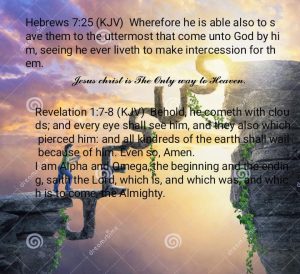
The use of the term “Merry Christmas” is not intended to refer to both Mary and Christ. The original meaning of the term is to convey the joy and good wishes of the Christmas celebration, and it is related to the celebration of the birth of Jesus Christ.
Meaning of the word:
The word “Merry” means happy, joyful, and fun. It conveys a festive atmosphere and a sense of joy.
“Christmas” is the feast of the Nativity of Christ, the main purpose of which is to remember and honor the birth of Jesus Christ.
The relationship between Mary and Christ:
The phrase “Merry Christmas” specifically refers to the joy of the birth of Jesus Christ, while Mary (the mother of Jesus) is not directly included. At Christmas time, it is common to honor Mary, especially in the Catholic and Orthodox traditions, where she is worshipped as “Godmother” or “Godmother”, but the message of “Merry Christmas” refers only to the joy and salvation of Jesus’ birth.
Thus, “Merry Christmas” does not refer to both Mary and Christ, but is used to celebrate the joy and celebration of the birth of Jesus Christ.
5 Biblical Truths from the Song “Mary Did You Know?”

The song “Mary, Did You Know?” is an emotional and serious song that presents a question asked to Mary about the birth of Jesus, and the song reminds us of some important truths from the Bible. Here are five key biblical truths from the song:
1. Jesus is the Son of God.
A part of the song says: “Maria, did you know that your son would be the Son of God?”
This indicates the divine nature of Jesus. Jesus is not just a man, but the Son of God who became flesh on earth. This truth was revealed at the birth of Jesus, and it is clearly stated in the Bible. (John 1:14)
2. Jesus is the Savior of the world.
Another part of the song asks: “Did you know that your son would save the world?”
Jesus was not just a baby, he was the Savior of the world. The main purpose of his birth was to be a sacrifice for the sins of the world. (Matthew 1:21)
3. Jesus will perform divine miracles by his power.
Another part of the song says: “Did you know that your son would make the blind see and the lame walk?”
Jesus performed divine miracles, including giving sight to the blind, enabling the lame to walk, and defeating death. Jesus’ power transformed people’s lives. (Matthew 11:5)
4. Jesus is the King of all
A portion of the song says: “Did you know that your son would be the king of kings?”
Jesus was not just born as an ordinary man, he is a king. His kingdom was spiritual, and his rule extended throughout the world. (Matthew 28:18)
5. Jesus will become a sacrifice for humanity
At the end of the song, the question is asked: “Did you know that your son would die on the cross?”
The purpose of Jesus’ life was to sacrifice himself for humanity. He freed us from sin by revealing his death on the cross. (John 3:16)
This song highlights important biblical truths through a question to Mary about the birth of Jesus, which reveals Jesus’ divinity, redemptive nature, and purpose in life.
5 Lessons Couples Can Learn from the Christmas Story.

The Christmas story is an important part of the lives of Joseph and Mary, and it contains some valuable lessons for couples. Here are five key lessons that couples can learn from:
1. Faith and trust
The Christmas story tells that when Mary received the news that she was pregnant with Jesus, she needed Joseph’s support. Although Joseph had not believed at first, he eventually accepted God’s guidance and decided to stay with Mary.
Lesson: Trust and confidence are important for a successful marriage. It is important to have faith in each other even during life’s difficulties and misunderstandings.
2. Patience and understanding
Mary and Joseph’s situation was very complicated, and they had to exercise great care and patience. In preparing for the birth of Jesus, they had to travel, to stay connected to each other despite family disagreements.
Lesson: A couple must be patient and understanding to understand each other’s thoughts and feelings. It is important to support each other during challenging times in life.
3. Working together
The Christmas story clearly shows that Joseph and Mary worked together as a team. In preparing for the birth of Jesus, they traveled together, searched for locations, and helped each other.
Lesson: Only when a couple works together can they overcome the challenges of family and life with ease and success.
4. Love and support
Mary and Joseph gave each other full support for the birth of Jesus. Joseph abandoned his life plans to accept Mary, and Mary took on the role of mother to Jesus.
Lesson: No couple’s relationship can be strong without love and support. It is important to support each other in challenges and difficulties, and to love each other even in difficult situations.
5. Faith in God’s plan and guidance
Joseph and Mary accepted God’s plan and guidance. When Joseph received God’s direction in a dream, he immediately accepted it and continued his journey with Jesus.
Lesson: A successful couple must trust in God’s guidance and follow spiritual guidance, collaborating with each other in life decisions.
Thus, the Christmas story inspires couples to learn valuable lessons in life: love, trust, understanding, support, and patience.
7 Unique Ways to Decorate Your Home for Advent and Christmas This Year.
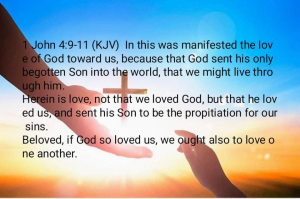
7 unique ways to make your home special and charming for Advent and Christmas this year:
1. Make a Christmas crown
During Advent, you can place a Christmas wreath (round wreath) at the main entrance of your home. It can be decorated with fresh green leaves, gold and red ribbons, and some plants, such as Christmas tree branches. This makes the welcome home special and adds to the festive atmosphere.
2. Make a special Advent calendar
The tradition of placing small glimpses of the 24 days in an Advent calendar is an old one. Decorate it in a modern style and place small gifts or messages on each day. Make a calendar out of paper, wood, or reusable panels and place it in a prominent place in your home.
3. Use of chandeliers and channel lights
Another great way to give your home a special, warm, and inviting atmosphere is to use candelabras (stylish candle holders) and natural candles. Use these candles as decorations that will make your home fragrant and cozy.
4. Advent-themed gifts and kitchen decorations
During the 24 days of Advent, you can brighten up your home by placing decorative gifts. Place these gifts in different places in the house: decorate with small gift boxes on the wall, Christmas ornaments on the table, or colorful jars of beads.
5. Special Bible Message Board
At Christmas time, keep a simple and beautiful Bible verse board in your home. Put a verse related to the birth of Jesus on it, which brings a spiritual atmosphere to the home. You can decorate it on the upper wall of your home, on the dresser or on the dining table.
6. Natural Christmas Decorations
Create a natural atmosphere at home using fresh Christmas trees, pine branches, dried flowers, and walnuts. These decorations can be used as a modern and natural mix that adds a real touch and love of Christmas.
7. Floating sandals and table display
Place Christmas lights and sandals on a floating table or floating shelf in your home. It can be made minimalistic and attractive. You can make the atmosphere of the home more warm and attractive by placing simple, shiny ornaments, candles, and Chinese glassware.
These 7 unique and creative ways to make your home inviting and spiritual for the Advent and Christmas celebrations.
8 Ways the Shepherds Show Us How to Follow God’s Call .

How the shepherds in the Christmas story accepted and followed God’s call teaches us an important lesson. Here are 8 ways that show how we too can joyfully and confidently follow God’s call as we follow God’s plan.
1. Respond promptly
After the angels told the shepherds the news of Jesus’ birth at night, they made an immediate decision and set out for Bethlehem.
Lesson: When God calls us, we must respond promptly, with confidence and faith.
2. Taking bold steps with confidence
The shepherds had no doubts when they heard the news of Jesus’ birth, they traveled in the darkness of the night to meet Jesus.
Lesson: We need to take bold steps with faith in God’s call, no matter what the path may be.
3. Adopt simplicity and humility
The shepherds were ordinary people, and how they made it easy and polite to meet the king of the kingdom.
Lesson: We must remain simple and humble when accepting God’s call, which makes us spiritually strong.
4. Spread the news to other people
The shepherds spread the good news of Jesus’ birth. After they met Jesus, they began to tell everyone about it, who received it with joy and reverence.
Lesson: After accepting God’s call, we should share it with others.
5. Meditation and mindfulness
When the shepherds heard the news of Jesus’ birth, they didn’t think carefully about what to do, they understood that they should remain spiritually and mindful.
Lesson: When God calls us, we must remain in spiritual focus and meditation.
6. Trust in God’s guidance
The shepherds traveled to meet Jesus under the guidance of the Angels, and they traveled the entire journey with faith.
Lesson: It is important to have complete trust in God’s guidance, and we should be encouraged to follow His plan and path.
7. Understanding God’s purpose and plan
The shepherds saw the birth of Jesus as part of a divine plan.
Lesson: When God calls us, it is important for us to understand His purpose and plan and contribute to nature.
8. Walking together in unity
The shepherds all went together and met Jesus. Together they united and cooperated with God’s plan.
Lesson: We must follow God’s call with cooperation and unity, which makes our work more effective.
The story of the shepherds teaches us important lessons of confidence, focus, and responsiveness. When we can follow God’s call with these qualities, we are able to fulfill His purpose in life.
10 Acts of Kindness to Strengthen Your Marriage This Christmas.

There are some positive and inexpensive things couples can do during Christmas to strengthen their relationship and create an atmosphere based on love. Here are 10 kindness activities that will help make your marriage stronger:
1. Writing a small note
On Christmas Day, you can write a loving message or words of gratitude to your partner. This small and simple act will make your relationship more lively.
Example: “I love you, and I’m always ready to support you.”
2. Making a friend’s favorite meal
On the occasion of Christmas celebration, you cook your friend’s favorite food. It shows your love and dedication and brings happiness to the house.
Example: If your friend’s favorite is M:M:, take the time to make it at home.
3. Preparing a gift for a friend
You can prepare a special, inexpensive and personal gift for your friend that expresses your love and affection. You can include a handmade card, a photo album, or a poem you have written yourself.
4. Spending time together
During Christmas, try to spend time with your partner. Simple activities like watching TV, eating together, or going for a walk will strengthen your marriage.
5. Getting help from friends in decorating for the festival
Encourage your friend to help you decorate your home for Christmas. This will increase the sense of sharing and togetherness and strengthen your relationship.
6. Plan a little surprise
At Christmas, you can plan a little surprise for your friend. It could be a small treat, a refreshing vacation, or a short trip to your friend’s favorite destination.
7. Spending time with your friend’s family and friends
Make plans to spend time together with your partner’s family and friends. This will give your partner a sense of love and respect, and strengthen your family bond.
8. Appreciate the truth
During Christmas, you can appreciate your friend’s efforts and contributions. This can include appreciating their help with work, housework, or everyday tasks.
9. Connecting emotionally with each other
During this season, you and your partner should take time to build a deeper emotional connection with each other. Open communication and shared feelings will make your marriage stronger.
10. Give each other time to rest.
It’s important to give each other time to relax during Christmas, reducing office work and household responsibilities. You and your partner can relax together and celebrate the holy occasion of Christmas with joy.
These activities increase love, understanding, and dedication in a couple’s relationship and help them feel the depth of true love amidst the joy of Christmas.
30 Times the Old Testament Predicts Jesus’ Birth and Death.

The Old Testament contains many prophecies about the birth and death of Jesus, which are fulfilled in the New Testament. Here are 30 prophecies that foretell the events leading up to Jesus’ birth and death. These prophecies point to the coming of Jesus as Savior and the purpose of His death.
1. Genesis 3:15 – “The seed of the woman”
Prophecy: In Genesis, God is telling the serpent that the seed of the woman will defeat Satan.
Fulfillment: Jesus triumphed in His death to defeat Satan (Luke 10:18, 1 John 3:8).
2. Genesis 22:18 – “From your offspring”
Prophecy: “In your seed all the families of the earth will be blessed.”
Fulfillment: The birth of Jesus and His sacrifice are blessing the whole world (Galatians 3:16, Matthew 28:19).
3. Isaiah 7:14 – “A virgin shall conceive”
Prophecy: “A virgin will conceive and give birth to a son, and they will call his name Immanuel.”
Fulfillment: Jesus was born of the virgin Mary (Matthew 1:22-23).
4. Isaiah 9:6 – “Savior”
Prophecy: “A child will be born to us, a son will be given to us, who will bear the government on his shoulders.”
Fulfillment: The birth of Jesus and his reign (Luke 2:11, Matthew 28:18).
5. Micah 5:2 – “Bethlehemmah born”
Prophecy: “You, Bethlehem, are small, but from you will come the Savior.”
Fulfillment: Jesus was born in Bethlehem (Matthew 2:1-6).
6. Isaiah 11:1 – “The House of David”
Prophecy: “A glorious branch will spring up from the house of David.”
Fulfillment: Jesus was born of the lineage of David (Matthew 1:1).
7. Isaiah 42:1 – “Servant of God”
Prophecy: “They will give us a servant in whom is the Spirit of God.”
Fulfillment: Jesus was God’s servant (Matthew 12:17-21).
8. Isaiah 50:6 – “The suffering of the Savior”
Prophecy: “I let my back be struck, and those who struck my cheeks were struck with bitterness.”
Fulfillment: Jesus’ suffering and agony (Matthew 27:26-30).
9. Isaiah 53:3-5 – “The suffering of the Savior”
Prophecy: “He will be rejected, and for our pains he will suffer truly.”
Fulfillment: Jesus’ suffering and death (Matthew 27:35-46, 1 Peter 2:24).
10. Isaiah 53:7 – “Keep silence”
Prediction: “He will be more silent than a lion.”
Fulfillment: Jesus remains silent on the cross (Matthew 27:12-14).
11. Isaiah 53:8 – “The death of the Savior”
Prophecy: “He will have to die for our sins.”
Fulfillment: Jesus died on the cross (Matthew 27:50).
12. Isaiah 53:10 – “The Savior’s Sacrifice”
Prophecy: “He will give himself as a propitiation for sin.”
Fulfillment: Jesus’ sacrifice (Matthew 27:35-46, John 19:30).
13. Isaiah 53:12 – “The Savior’s Sacrifice”
Prophecy: “He will make atonement for the sins of many.”
Fulfillment: Jesus’ sacrifice (Luke 22:19-20).
14. Isaiah 61:1-2 – “The Spirit of God”
Prophecy: “The Spirit of God will be upon him, to bring him a message and to bring relief to the afflicted.”
Fulfillment: Jesus continues to provide spiritual healing and comfort (Luke 4:18-19).
15. Zechariah 9:9 – “The King will come to Zion”
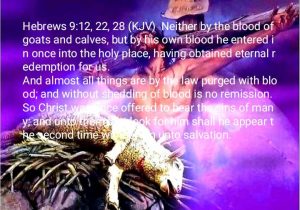
Prophecy: “Rejoice, O daughter of Zion, for her king comes, riding on a donkey’s colt.”
Fulfillment: Jesus entered Jerusalem riding on a donkey (Matthew 21:5).
16. Zechariah 11:12-13 – “30 pieces of silver”
Prophecy: “He will be sold for 30 pieces of silver.”
Fulfillment: Jesus was betrayed for 30 pieces of silver (Matthew 26:14-15).
17. Zechariah 12:10 – “The Wounds of the Savior”
Prophecy: “They will begin to mourn for the loss of my beloved.”
Fulfillment: The part of Jesus’ crucifixion (John 19:34-37).
18. Genesis 49:10 – “Judah and the seed”
Prophecy: “Instead of Judah, the king’s reward will come.”
Fulfillment: Jesus was born of the tribe of Judah (Matthew 1:2).
19. Isaiah 28:16 – “A sure foundation in a pattern”
Prophecy: “You will give us a foundation on a sure foundation.”
Completion: Jesus is the pattern of a sure foundation (Matthew 7:24-25).
20. Matthew 2:15 – “Prosperity in Egypt”
Prophecy: “He will be given refuge in Egypt.”
Fulfillment: The flight of Jesus into Egypt as a child (Matthew 2:14-15).
21. Joel 2:28-30 – “Fulfillment of the Spirit”
Prophecy: “I will pour out my spirit on the people.”
Fulfillment: The coming of the Spirit at Pentecost (Acts 2:4).
22. Zephaniah 3:15 – “The reproach of sin”
Prophecy: “I will take away your sins.”
Fulfillment: Jesus destroyed our sin (John 1:29).
23. Amorito 5:26 – “The rod of justice”
Prophecy: “The scepter of justice will be in his hand.”
Fulfillment: Jesus has given us justice and forgiveness (Matthew 28:18-20).
24. John 12:41 – “People saw Jesus and believed.”
Prophecy: “People will believe because of his vision.”
Fulfillment: Jesus’ miraculous works increased faith (Luke 6:17-19).
25. Isaiah 55:3-4 – “Bondage”
Prophecy: “You must obey God’s word.”
Fulfillment: Jesus lived out the Word (Matthew 4:4).
26. Verse 7 – “Government”
Prophecy: “I will send a king to rule.”
Fulfillment: Jesus arrived as ruler (Luke 23:3).
27. Isaiah 52:13-15 – “Birth and Peace”
Prophecy: “He must do his work in this land.”
Fulfillment: Jesus gave us the word that gives us peace (John 14:27).
28. Isaiah 54:1-5 – “The Seed”
Prophecy: “Children will be born.”
Fulfillment: Jesus’ message of the gospel will reach many people (Matthew 5:3).
29. Ezekiel 34:23-24 – “The Reigning King”
Prophecy: “I will give them a sure king.”
Fulfillment: Jesus will be recognized as king (Luke 23:3).
30. Isaiah 26:19 – “Redeemer”
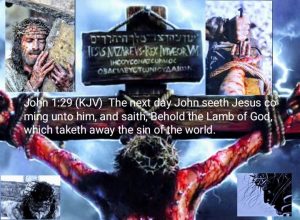
Prophecy: “We will live in our lives.”
Fulfillment: The resurrection of Jesus (Matthew 28:6).
All of these prophecies foretold the events of Jesus’ birth and death in the Old Testament and were fulfilled in the New Testament.
Christmas
- Christmas
- When we hear the word Christmas, we believers remember various things. We remember the birthday of Christ. We remember the cake that is cut on that day. We remember the joyful dancing and singing of carols. We remember the decorations of the house and the church. Some may remember only the feast eaten in the church! They remember the exchange of gifts. They remember the new clothes. For some, the pressure increases due to the worry of expenses! But is Christmas all about that? Is Christmas really just about eating, decorating, and having fun? If we really ask, what is the true meaning of Christmas? Why a Christmas tree? Why hanging a star? Why a Santa Claus statue? Why exchanging gifts? Why carols?
- The Nepali word “Christmas” is a loanword borrowed from English. This word appears to have been in use since 1568. In fact, the word ‘Christmas’ is a combination of two Old English words, ‘Christ’ and ‘masse’ (Cristes mæsse). These Old English words are found to have been in use since 1123. Therefore, the word “Christmas” literally means “the congregation of Christ”. However, the word ‘Christmas’ is used to refer to the feast celebrating the birth of Christ.
- Strangely enough, the early Christians did not celebrate Christ’s birthday (Christmas). They considered this to be a pagan custom. But Easter and Pentecost were on their calendar, meaning they did not celebrate Christ’s birthday but his resurrection (Easter) and the coming of the Holy Spirit (Pentecost). When we look at history, we see that the celebration of Christ’s birthday began in the fourth century. Since the exact date of his birth was unknown, various dates were suggested, including March 25, April 2, May 20, November 8, December 25, and January 6. Pope Julius I chose December 25, and the first celebration of Christ’s birthday was in the year 336, during the reign of Emperor Constantine.
- Even today, some believers give various reasons for not celebrating Christmas. However, they cannot provide any logical reasons to prove that Christmas should not be celebrated at all.
- In fact, there are many good reasons to celebrate the birth of Christ, or Christmas. First of all: If Jesus Christ had not been born into this world, He could not have died on the cross; if He had not died on the cross, our sins would not have been forgiven; and, if our sins were not forgiven, we would have to spend eternity in hell. However, because of His birth, all those impossible things have become possible and we have received forgiveness of sins. Therefore, we should celebrate Christmas to thank Him.
- The second reason is God’s will and command! God has not directly commanded us to celebrate Christmas anywhere. However, through Christmas, the celebration of Christ’s birth, we can fulfill many of His wishes or commandments. For example, according to 1 Thessalonians 5:16 and Philippians 4:4, He wants us to always rejoice. In fact, one of the main purposes of God sending Christ Jesus into this world is so that people will not suffer eternally in hell, but rejoice in Him. On the day of Christ’s birth, the astrologers rejoiced greatly (Matthew 2:10). The angels rejoiced and told the good news to the shepherds. Mary and Joseph rejoiced. And God the Father was glorified in heaven (Luke 2:8-14). Therefore, we should also celebrate Christmas to rejoice in Him and fulfill His desire to rejoice.
- In addition, He has given us two great commandments: 1. To love Him with all our heart, with all our soul, and with all our mind; and, 2. To love our neighbor as ourselves. A good time to keep these two great commandments in a good way is Christmas. This does not mean that we should be careless at other times and pretend to love Him on Christmas Day. But in fact, Christmas is an occasion where we can express the love we have in our hearts for our neighbors, friends, and acquaintances with special gifts and food that we have prepared all year long. We can also express our love for God with special preparation on Christmas Day, along with our daily expressions. That is why Christmas should be celebrated.
- Another main purpose of celebrating Christmas is to spread the gospel of Christ. Christmas is an opportunity to tell every unbelieving friend who comes to see the joy of Christmas about the love and grace of Christ. Even though we invite them to other services, they do not come to church due to their busy work or some excuse, but on Christmas day they come with special preparation. Therefore, this is a really good opportunity in which we can show them the way of truth.
- Feasting, new clothes, glittering decorations, or merrymaking are not the main focus or purpose of Christmas. All of these things may be somewhat acceptable as means of celebrating Christmas, but the pure purpose of all of these things is not personal gain or general entertainment, but the true worship of God, the spiritual growth of believers, and the preaching of the gospel to souls who are dying without Christ!
- Conclusion: ‘Christmas’ is a Christian holiday celebrating the birth of Jesus Christ. This holiday is celebrated to celebrate the joy of Jesus Christ coming to this world to take away the sins of man, to worship God for the sake of His love, and to preach the good news of His grace to everyone.
Freedom
What does the Bible say about hell?























9 Responses
God bless you for coming to our website Feel free to contact if you have any questions or comments.
Hi my loved one I wish to say that this post is amazing nice written and include approximately all vital infos Id like to peer more posts like this
God bless you for coming to our website Feel free to contact if you have any questions or comments.
I loved as much as you will receive carried out right here The sketch is tasteful your authored subject matter stylish nonetheless you command get got an edginess over that you wish be delivering the following unwell unquestionably come further formerly again as exactly the same nearly very often inside case you shield this hike
God bless you for coming to our website Feel free to contact if you have any questions or comments.
Thank you for the auspicious writeup It in fact was a amusement account it Look advanced to far added agreeable from you However how can we communicate
God bless you for coming to our website Feel free to contact if you have any questions or comments.
of course like your website but you have to check the spelling on several of your posts A number of them are rife with spelling issues and I in finding it very troublesome to inform the reality on the other hand I will certainly come back again